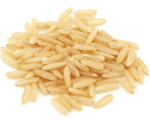 Happy Celiac Disease Awareness month! There’s been a lot of research in the gluten-free world lately, and so here’s an update.
Happy Celiac Disease Awareness month! There’s been a lot of research in the gluten-free world lately, and so here’s an update.
Did you see the headlines on heart disease and a gluten-free diet? This May 2017 study followed a large sample of health professionals, and estimated the amount of gluten they ate and tracked their risk of cardiovascular disease. What they found was no significant relationship, although there was a trend towards more heart disease in people eating less gluten. The authors guessed this trend was due to the lack of whole grains.However, there are a few big caveats about this study. It didn’t look at people with Celiac disease, nor did it even look at people following a gluten-free diet per se—it just compared people eating the most and least gluten. I’d also be curious if there were other differences in the diets of these people that might have been the cause.
- Main take home—don’t follow a gluten-free diet primarily to improve heart health.

This article was more concerning. It looked at people around the U.S. following a gluten-free diet, and compared blood and urine samples. People following a gluten-free diet had much higher levels of mercury, and almost double the amount of arsenic. Yikes.
I’ve written about arsenic risk here and in Simply Gluten-Free Magazine. Essentially, the problem is that rice fields were sprayed with pesticides containing arsenic years ago, and people on a gluten-free diet tend to eat much more rice than average.
- The simplest answer is to vary starches rather than overdoing rice. That could be sweet potatoes, potatoes, quinoa, buckwheat, beans or lentils, and the range of gluten-free grains, like GF oatmeal, wild rice, corn, millet, teff, sorghum, amaranth, etc. There’s always zoodles, cauliflower rice and other starch alternatives, too.
- Consider checking in with a nutrition pro to make sure your diet is balanced.
Why did I get Celiac? And why now? While 30% of the population has the genes for Celiac, only 1% of the population has it, and there’s tremendous speculation on why and how we go from the potential to have Celiac to actually having it. We may be one baby step closer to an answer. A new study found a link between a common virus and the development of a Celiac-like condition in mice. Surely much more to come!
Another recent study found that the risk of anorexia is higher in women with Celiac disease. Women with Celiac disease were twice as likely to be later diagnosed with anorexia—and women diagnosed with anorexia were more likely to later be diagnosed with Celiac, too. To be clear, this doesn’t mean that Celiac causes anorexia, but it’s just one more reason to emphasize good emotional health for people with Celiac disease.
Speaking of a center that does a great job with addressing the emotional health side of Celiac, Children’s Celiac Disease program is having their annual Washington DC Gluten-Free Expo on June 11th, 2017 in Bethesda. It’s always a lot of fun and a lot of good food, and supports a wonderful cause—gluten-free children! I really appreciate the great work CNMC does. Register at and there’s a 10% discount code, HarrisHealth.
Last but not least–it’s Farmers’ Market season! Find one near you.
Cheryl Harris, MPH, RD is a Registered Dietitian Nutritionist and Certified Wellcoach in Fairfax & Alexandria, VA. She helps people with a range of dietary issues, including Celiac Disease, GI issues, food allergies, pregnancy, breastfeeding, vegetarian and vegan diets, preventing diseases and “whole foods” eating. Let’s get you on your way to achieving your goals and feeling great! Email or call 571-271-8742.
